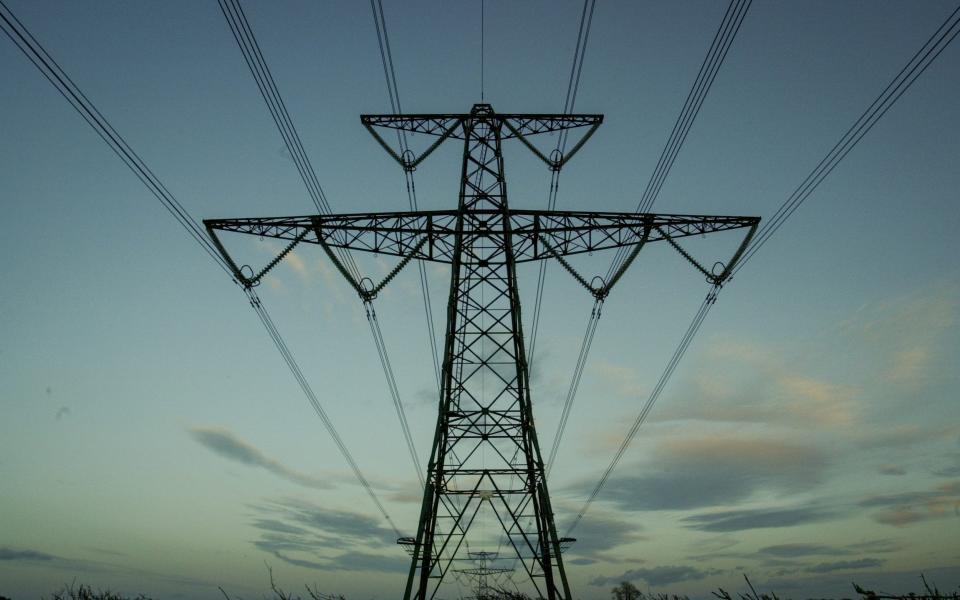This company is in a powerful position for capital returns

Shares in National Grid are ex-dividend as of last Thursday and 37.6p a share in cash will land with shareholders on Aug 9, to add to the healthy share price gain we have on paper following our latest look at the utility last November.
The FTSE 100 company still looks capable of providing a welcome mix of yield and capital returns.
National Grid owns and operates the UK’s electricity and gas transmission network (and similar networks in the United States).
These are tightly regulated, as it received a pre-set price from energy suppliers based on the size of its asset base rather than the volume of energy it transmits.
This is a sensitive area economically and politically and the attentions of the regulator, under the price control regime, plus the company’s substantial capital investment bill (£8bn in the fiscal year to March 2022), should partly deflect criticism of profiteering for those concerned about such issues, either from an ethical perspective or out of fears that the regulator could tighten the screws even further.
That said, changes to the Government’s capital allowance regime will impact earnings growth in the year to March 2024, when underlying earnings per share (EPS) could come in slightly lower.
Some 45pc of the utility’s regulatory asset value lies in the US, so that also offers a shield from political developments in the UK, while those investors who run strict ethical, environmental and social (ESG) screens may draw further comfort from how National Grid is setting up a new business that will facilitate the connection of 17 offshore wind projects to the UK grid.
Such projects underpin the company’s plan to grow its regulatory asset base by 8pc to 10pc a year out to March 2026, a trajectory which is also expected to deliver consistent earnings growth (once the bump caused by the new tax regime in the UK is passed) and in turn underpins analysts’ forecasts for steady dividend increases.
The forward 5.5pc yield will catch the eye of income seekers and could stand out if, as and when the interest rate cycle turns and the Bank of England starts to hold and then cut the headline base rate, utilities are not (crudely) viewed as bond proxies without good reason.
Lower rates will likely weigh on bond yields and lower bond yields could increase the relative attraction of plump dividends from equities.
National Grid remains an income staple.
Questor says: HOLD
Ticker: NG
Share price at close: £10.62
Update: Polymetal
This column is looking at gold miner Polymetal in response to a reader’s request, although this one is very much an unfortunate case of “well, I wouldn’t start from here if I was you”.
This column has sympathy with the view that gold may be one potential hedge against government profligacy and central bank monetisation of debts (not least as gold cannot be printed, unlike money).
Such arguments may have brought Polymetal onto investors’ radar when it was a constituent of the FTSE 100. It runs nine mines in Russia and Kazakhstan that produce gold, silver and also copper, and has three more developmental or exploration sites. As a result, it is one of the world’s top 10 gold and silver producers.
However, Polymetal is a tickly one, owing to sanctions against Russian firms, which are at least partly responsible for the 90pc-plus fall in the miner’s share price.
The plan to shift its listing to Astana in Kazakhstan from London – approved at a general meeting last week – is designed to unlock the value that may be there, perhaps by enabling Polymetal to split up the Russian and Kazakh mines into separate entities. The $900m (£727m) market cap compares to a stated book value of $2.2bn after all.
Polymetal will now apply for its shares to be suspended, from mid-July, while it seeks to complete the change of listing.
Shareholders therefore have time to consider their options: wait for the change in listing in the hope value and dividends ultimately emerge, and then negotiate the implications of dealing on the Kazakh exchange, bearing in mind the miner’s warning that its shares could be suspended in London for a “prolonged period” as it works out the switch; or cut and run and at least create some tax-loss carry forwards, assuming the stock is held in a dealing account rather than an ISA or SIPP.
There is no “right” answer that covers everyone and only the individual investor can know which may be the best course of action for their own personal strategy, time horizon, target returns and appetite for risk.
Russ Mould is investment director at AJ Bell, the stockbroker
Read the latest Questor column on telegraph.co.uk every Sunday, Tuesday, Wednesday, Thursday and Friday from 6am.
Read Questor’s rules of investment before you follow our tips

 Yahoo Finance
Yahoo Finance 